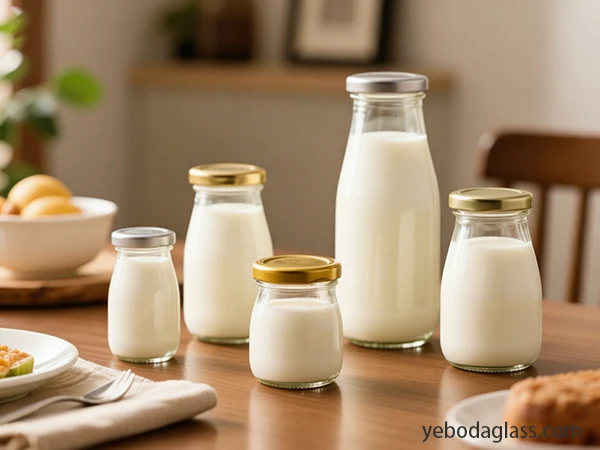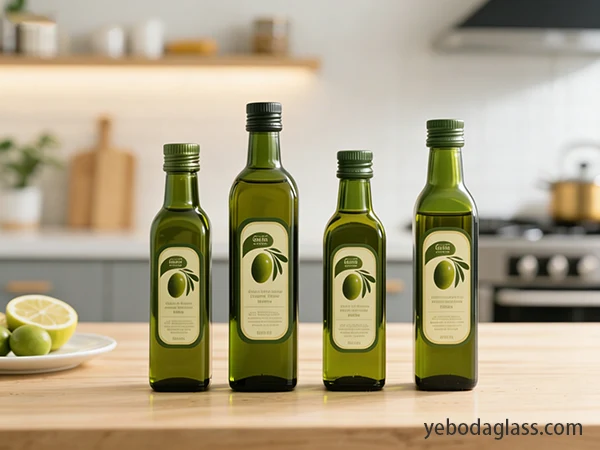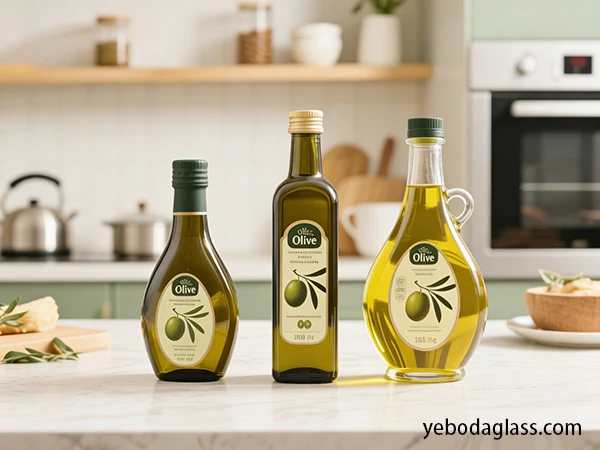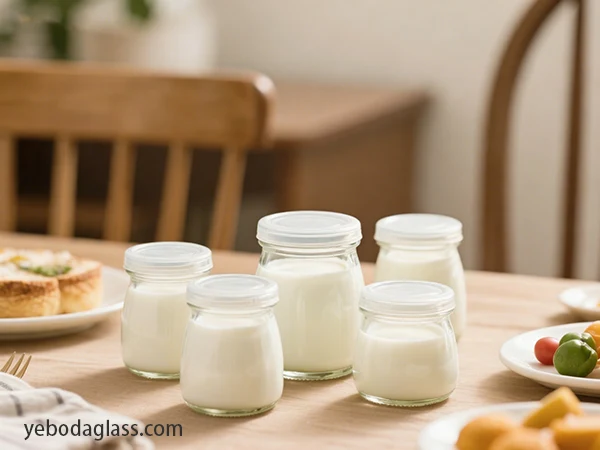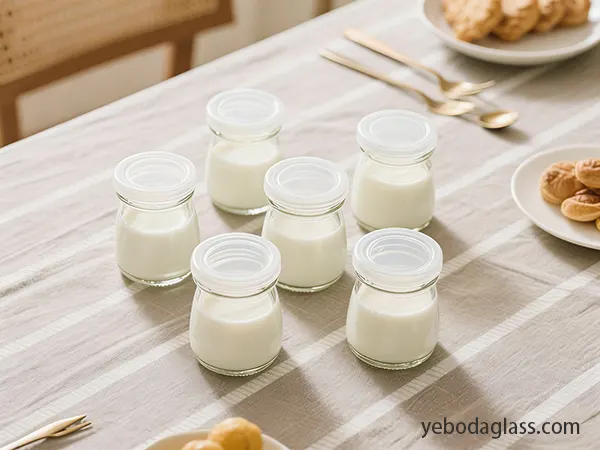介绍
在全球包装市场,变革显而易见,我们可以说,该市场正寻求重启,而可持续性和消费者体验将成为引领潮流的因素。其中最具影响力的变化之一是梅森罐散装包装使用量的增加,预计这将主导到2026年的行业格局。本文档旨在为希望通过使用梅森罐来提升品牌形象并同时节省成本的品牌提供全面的指导。 玻璃梅森罐.
梅森罐散装的概念可以用以下两个关键点来解释:
- B2B空罐运输——指大规模采购和供应空罐。 玻璃罐 这些玻璃罐直接从玻璃罐生产商处采购,随后被食品制造商、化妆品品牌和包装公司使用。其主要目标是降低成本、确保稳定供应并规范生产流程。
- 罐装产品散装分销——这是食品、饮料或美容产品批发零售的主要方式,产品包装采用玻璃梅森罐,可以多件装或按体积出售。该模式致力于通过使用安全的运输方式和环保的包装设计来推广产品。
这种模式的转变正在改变食品饮料、化妆品、工艺品和家居装饰等行业,这些行业都深受真实性、高端美学和环保设计等因素的影响。随着全球需求的增长,供应商的选择在维护品牌一致性和创造长期价值方面发挥着至关重要的作用。 Yeboda的梅森罐散装解决方案完美结合了持久耐用的工艺、以客户为中心的设计以及环保的生产流程,为企业提供了坚实的基础,以满足现代包装的要求,同时提高了运营效率和品牌认知度。

总体市场驱动因素和消费者吸引力
不同的市场和消费者因素都倾向于传统的、同时又环保的解决方案,这导致了散装梅森罐包装的回归。
审美价值和怀旧价值
玻璃梅森罐的魅力具有普世性,老少咸宜。它们粗犷却不失格调的外观,让人想起过去手工制作的质朴与真诚。越来越多的人选择用梅森罐来盛装手工食品、有机化妆品或家居装饰品,以此向顾客传递产品品质上乘、来源可靠的信息。在梅森罐的销售领域,透明的罐身不仅能吸引顾客的目光,促进销售,更象征着纯净与信任。
感知到的自然度和透明度
与塑料不同,玻璃不会改变产品的化学性质,因此不存在污染风险。此外,透明性让买家能够看到产品的颜色、质地和新鲜度,从而迅速提升信任度。这对于天然食品和清洁美容行业而言是理想之选,因为这些行业的消费者群体将透明度放在首位。
可重复使用性和循环经济的影响
梅森罐散装系统最显著的特点就是可重复使用性。一个玻璃梅森罐可以经历多次循环利用,无论是用于补充装还是家庭改造。这一特点与循环经济理念完美契合,从而帮助品牌减少浪费,吸引环保消费者。
可持续性和监管势头
减少塑料使用和实现碳中和是世界各国政府和企业共同设定的目标。玻璃作为一种可以无限循环利用的材料,完全符合这些要求。因此,梅森罐散装包装符合影响深远的政策和ESG(环境、社会和治理)目标。
空梅森罐散装包装的B2B供应链趋势
梅森罐的批量供应链并非一成不变,而是快速变化以适应消费者的需求。为了满足全球对耐用环保玻璃包装的巨大需求,各公司正在对其供应链进行全面改革,涵盖采购、供应商合作和物流等各个环节。
优化梅森罐散装运输的物流
玻璃梅森罐很重而且易碎,因此需要非常特殊的物流系统。
- 优化托盘堆垛: 通过自动化堆垛和保护性分层减轻了损坏。
- 可持续包装材料: 采用模压纸浆托盘和可回收缓冲材料。
- 货物拼装: 合并货运以减少碳排放的过程。
- 区域制造业: 本地生产的罐子不仅可以减少运输成本,还能带来更大的自由。
供应链透明度和实力
如今,数字化手段已成为梅森罐散装物流管理的必要手段:
- 物联网传感器和区块链: 这些设备用于货物跟踪和质量控制。
- 人工智能需求预测: 它有助于预测库存需求,并动态调整生产。
- 多元化采购: 通过拥有多个区域供应商来做到这一点的公司,就能降低出现这种情况的风险。
通过自动化实现省钱措施
自动化是改变玻璃罐供应链格局的关键因素,它正在从生产者的角度重新评估供应链效率,正如文中所述:一方面,机器人码垛和拆垛系统已经普及;另一方面,机器能够以极高的精度和速度完成高速灌装和封口;精益生产系统则最大限度地减少了浪费。

绿色交通解决方案
一些对地球有益的物流策略包括使用电动卡车、多式联运铁路以及可重复使用的货箱,以减少排放并提高运营的可持续性。
梅森罐产品散装包装趋势
以下部分将讨论装在玻璃梅森罐中的成品,以及它们如何响应消费者随着时间推移而不断变化的需求。
提升消费者吸引力的设计
- 视觉叙事: 透明罐子不仅展现了产品色彩缤纷的层次感,也展现了成分的天然质感。
- 人体工学改进: 可堆叠、易于抓握的设计使其对用户非常友好。
- 高级标签整合: 通过直接在玻璃上印刷,就能实现这种极简主义的美感。
- 季节性定制: 限量版玻璃梅森罐是人们收藏并忠于它们的主要原因。
盖子和封口创新
- 顶级密封系统: 采用高性能内衬,持久保鲜。
- 实用盖子: 为了方便取用,可使用倾倒嘴、摇晃器或泵。
- 防篡改功能: 通过采用连体撕拉带,给消费者带来安全感。
环保技术现在采用竹子、软木和PCR塑料代替普通金属。
用于产品保护和品牌推广的二级包装解决方案
- 可回收纸板箱: 用于保护和品牌推广。
- 生态极简设计: 减少油墨用量,并采用可回收涂料。
- 一体式把手: 提升消费者的便利性。
- 补充系统: 用于 B2B 补货和闭环物流的可重复使用包装箱。
玻璃梅森罐的材料创新与可持续性
玻璃梅森罐散装行业正因材料科学创新而发生变革,这些创新旨在减少碳排放和提高可回收性。
先进罐体材料
- 高回收玻璃含量(碎玻璃): 碎玻璃含量降低高达 90%,可减少能源消耗。
- 轻量化玻璃工程: 结构重新设计降低了运输成本。
- 其他二氧化硅来源: 探索生物基投入物以提高循环性。
可持续盖系统
- 回收金属盖: 可完全回收利用的马口铁盖的选择。
- 生物基塑料盖: PLA和PHA盖型产品的市场正在扩大。
- 可重复使用的补充装盖子: 经久耐用的系统,可多次洗涤。
可持续标签和包装
- 可堆肥标签材料: 采用再生材料制成的纸张,以及源自天然的油墨。
- 极简主义品牌: 减少粘合剂用量,并采用玻璃直接印刷技术。
- 减少包装: 罐子用木箱包装运输,保护膜极少。

循环经济与减少浪费
成熟的梅森罐散装系统严重依赖循环基础设施:
- 存款返还计划: 鼓励消费者重复使用产品的方法。
- 闭环清洁系统: 工业级清洗和循环系统。
- 消费者教育: 向消费者提供信息,以促进正确的处置和再利用方法。
区域和行业特定趋势变化
区域动态
- 北美: 该地区以浓厚的DIY文化为特色,这主要推动了梅森罐的大量需求,这些梅森罐主要用于食品保鲜、化妆品和工艺品制作。尽管再利用的基础设施尚处于起步阶段,但可持续发展的势头依然强劲。
- 欧洲: 非洲大陆在循环经济的实施方面处于领先地位。玻璃罐押金回收系统得到广泛应用。梅森罐是零售业有机和零浪费领域的主要包装类型。
- 亚太: 高端食品和化妆品市场对玻璃罐的接受度非常高。大宗电商配送和灌装站模式中,玻璃罐的使用量显著增加。
行业特定洞察
- 食品和饮料: 大包装家庭装梅森罐,适用于酱料、发酵食品和即食食品等。
- 化妆品: 用于盛装乳霜和磨砂膏的可重复灌装罐,既时尚又环保。
- 工艺品和装饰品: DIY、蜡烛制作和活动装饰等领域对各种尺寸的需求不断增长。
战略展望与未来考量
随着各行业将重点放在环保、透明、美观的包装上,梅森罐散装市场将继续扩大。
新兴技术
- 人工智能供应链管理: 利用预测分析进行需求和库存管理。
- 智能标签: 带有二维码的玻璃罐,可提供追溯信息和回收说明。
- 先进玻璃熔炉: 以电力和氢气为动力,排放污染物更少的系统。
- 自动化: 利用机器人提高生产线的效率和一致性。
潜在的干扰
- 替代材料: 另一方面,未来可能是生物聚合物和菌丝包装,它们是下一个潜在的竞争对手。
- 监管要求: 加强对再利用和回收目标的监管。
- 经济转型: 成本因素对高端玻璃制品需求的影响日益显著。
- 基础设施限制: 在欠发达地区扩大设施再利用规模的问题在于:
战略建议
- 与使用回收材料的环保玻璃梅森罐生产商合作。
- 利用人工智能和区块链技术实现B2B物流数字化,提高透明度。
- 寻找新的方法,使罐子使用起来更舒适,外观更美观,从而在品牌推广方面脱颖而出。
- 启动循环再利用计划,并向公众普及环保做法。
- 利用区域化采购不仅可以提高适应能力,还可以减少碳排放。
- 与玻璃价值链上的其他参与者携手合作,发掘能够互惠互利的创新。

结论
梅森罐散装市场不仅仅是包装领域的一时风潮,它更代表着向环保闭环产品体系的全面转型。从长远来看,合理利用玻璃梅森罐能够帮助企业节省成本、提升品牌价值并降低环境影响。生态创新、供应链数字化以及消费者审美需求的共同推动,使得玻璃梅森罐散装包装在食品、化妆品和家居装饰等行业中,依然是可持续发展的关键因素。那些现在就投资建设大规模、循环利用且设计前卫的梅森罐散装包装体系的企业,不仅能够保持竞争优势,更将引领2026年及以后可持续包装的未来发展方向。

